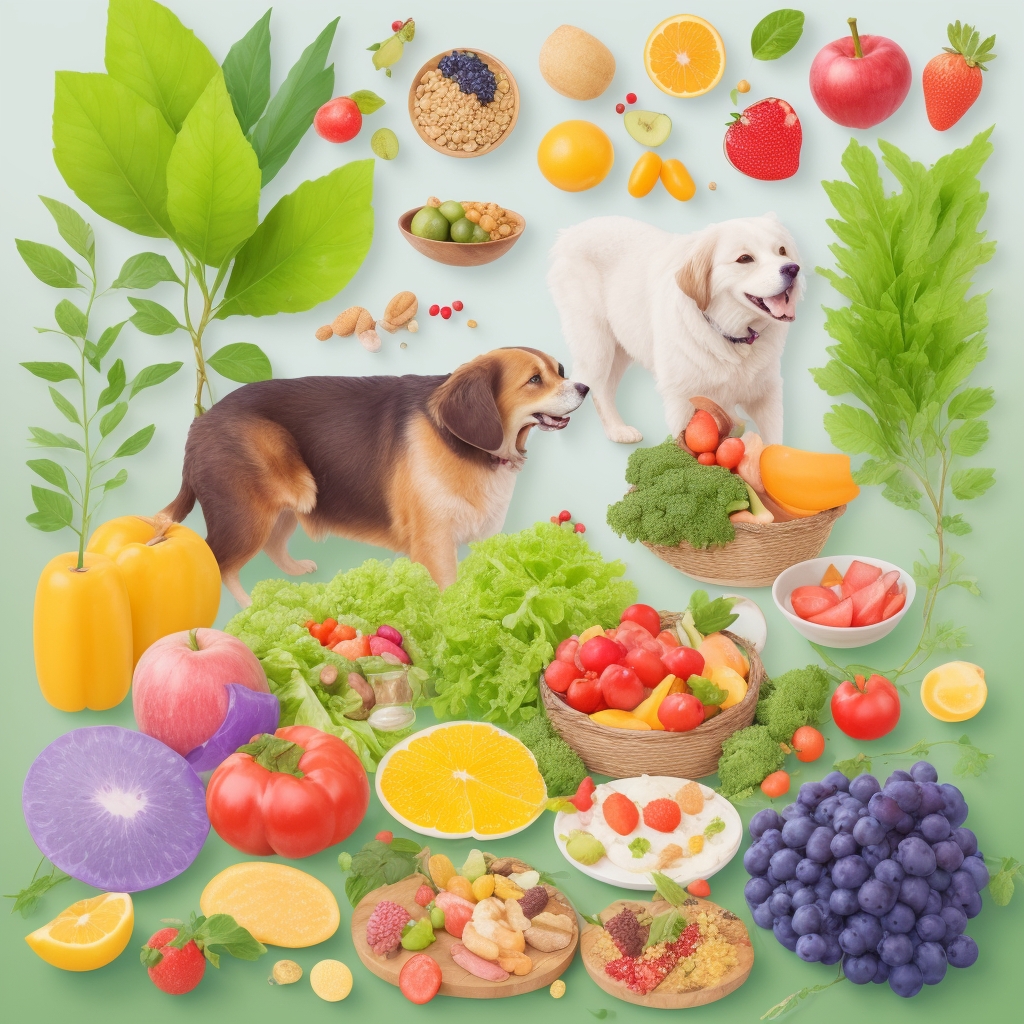Hair shedding in dogs is a natural phenomenon that varies in intensity with the seasons. While normal, this process can be minimized through a tailored diet. By adjusting your dog’s diet according to the seasons, you can not only reduce excessive shedding but also improve your furry companion’s overall health. This article explores different nutritional strategies to optimize your dog’s coat throughout the year.
Understanding Seasonal Hair Shedding
Hair shedding, or molting, is a process by which dogs shed their coats to adapt to temperature changes. Generally, dogs shed their winter coats in spring to make way for a lighter summer coat, and vice versa in autumn. This cycle can be influenced by several factors, including breed, age, and especially, diet.
The Impact of Seasons on the Coat
Each season has a different influence on your dog’s coat. In winter, a thicker coat is necessary for protection against the cold, while in summer, a lighter coat helps regulate body temperature. An inadequate diet can exacerbate hair loss by weakening coat quality.
Adjusting the Diet Seasonally
To limit hair shedding, it’s essential to adapt your dog’s diet to seasonal needs.
Winter Diet
In winter, dogs’ energy needs increase. A diet rich in protein and healthy fats is recommended. High-quality proteins, for example, from lean meats like chicken or beef, support hair growth and repair. Omega-3 and omega-6 fatty acids, often found in fish oil, are essential for maintaining a healthy coat and reducing skin inflammation.
Spring Diet
Spring is a transition period. Gradually reducing fats while maintaining a good level of protein will help your dog adjust. Adding fiber-rich vegetables, such as carrots and spinach, can improve digestion and contribute to a healthier coat.
Summer Diet
In summer, it’s crucial to keep your dog hydrated and provide a lighter diet. Water-rich foods, like zucchini and melons, can be incorporated into the diet. Reducing fat quantities while maintaining sufficient protein and vitamin intake helps limit hair loss.
Autumn Diet
As winter approaches, increasing the calories and fats in your dog’s diet will be beneficial. Complex carbohydrates, such as brown rice and sweet potatoes, can provide a sustained energy source. Essential fatty acids should be gradually reintroduced to prepare the coat for colder weather.
Concrete Examples and Use Cases
Take Max, a 5-year-old Labrador Retriever, as an example. In winter, Max eats a meal consisting of kibble enriched with fatty acids and fresh meat to maintain a thick coat. In spring, his owner reduces fats and introduces fresh vegetables to facilitate the transition. In summer, his food mainly consists of light kibble with added hydrating fruits. Finally, in autumn, portions of complex carbohydrates increase to support the energy needed for a denser coat growth.
Key Points and Best Practices
- Quality Proteins: Ensure your dog’s diet is rich in high-quality proteins throughout the year.
- Essential Fatty Acids: Integrate sources of omega-3 and omega-6 to promote a healthy coat.
- Hydration: Keep your dog well-hydrated, especially in summer, to prevent excessive hair loss.
- Gradual Adaptation: Adjust the diet progressively between seasons to avoid dietary stress.
FAQ
Why does my dog shed so much hair in the spring?
Spring shedding is a natural molting process where dogs shed their winter coats to adapt to warmer temperatures.
What supplements can I give my dog to limit hair loss?
Supplements rich in omega-3 fatty acids, such as fish oil, can help reduce hair loss and improve coat health.
Should my dog eat more in winter?
Yes, energy needs increase in winter, so an additional calorie intake, especially from protein and healthy fats, is recommended.
Are fruits and vegetables good for my dog’s coat?
Yes, fruits and vegetables rich in vitamins and fiber can improve overall coat health and digestion.
Can I adjust my dog’s food without consulting a vet?
It’s always best to consult a veterinarian before making significant changes to your dog’s diet to ensure their specific needs are met.
Conclusion
Adjusting your dog’s diet seasonally is an effective method to limit hair shedding and maintain a healthy coat. By understanding the specific nutritional needs of each season and adapting food intake accordingly, you can ensure your dog’s well-being throughout the year. For personalized advice, don’t hesitate to consult a veterinarian or a pet nutritionist.







